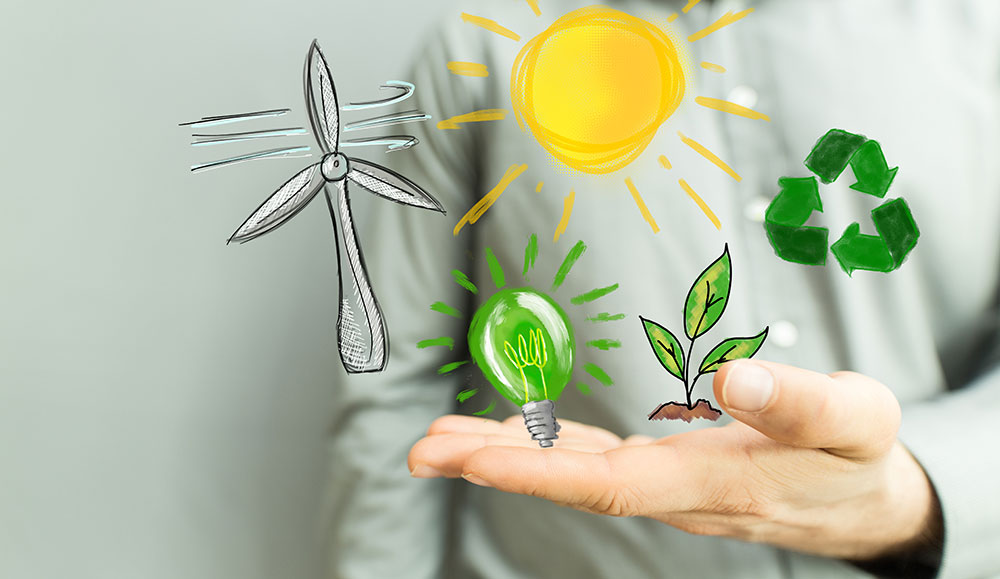Driven by the imperative to offer better quality of life to people living in remote areas and to promote sustainable agriculture, the number of microgrid projects is growing fast. Schneider Electric, a leader in digital transformation of energy management and automation, helps communities maximise efficiency and profitability thanks to EcoStruxure™ for Energy Access, a comprehensive metering, analytics and reporting solution for microgrid projects.
Providing sustainable, reliable, green and safe energy access for all
One in seven people in the world still lack access to electricity, mostly in sub-Saharan Africa, Latin America and Southeast Asia. In its Sustainable Development Goals (SDG) #7, the UN set the objective for 2030 to ensure universal access to affordable, reliable and modern energy services while increasing the share of renewable energy in the global energy mix. This would involve improving energy efficiency and enhancing international cooperation to facilitate more open access to clean energy technology and investment in clean energy infrastructure.
According to IEA 2017 World Energy Access Outlook, microgrids are the most cost-effective way to expand energy access in remote areas. The IEA also predicts that by 2030, between 30% and 40% of people in developing countries will be powered by microgrids, fuelled by renewable energy sources such as solar. However, the available energy – at least initially – only allows access to basic services such as mobile phone charging and LED lighting, while end-users often earn less than $1.50 a day. Precise load management and metering, as well as real-time monitoring and analytics, are needed to maximise the efficiency of these projects and to guarantee that they can thrive and grow.
EcoStruxure™ for Energy Access software platform guarantees microgrid efficiency
Schneider Electric is actively engaged to accomplish the 17 SDGs through its core business and its five sustainability megatrends: climate, circular economy, ethics, health & equity and development. “At Schneider Electric, our role is to make sure that Life is On for everyone, everywhere, at every moment. As such, sustainability is at the heart of our company strategy,” said Gilles Vermot Desroches, Sustainability Senior Vice President at Schneider Electric. Through its Access to Energy programme, Schneider Electric wants to play a major role in helping underprivileged people to gain access to electricity. The Group is involved in three specific areas: investment, offer and training & entrepreneurship, with the desire to create a virtuous circle combining business, innovation and responsibility. Since its launch in 2009, the programme has improved life by giving access to reliable, clean and affordable energy to more than 4.6+ million households, investing in 14 start-up companies and training more than 148,000 people in more than 45 countries.
Schneider Electric has unveiled its EcoStruxure™ for Energy Access, an affordable, flexible and open architecture and platform that improve profitability and efficiency of off-grid installations with data-driven analysis. “EcoStruxure™ for Energy Access is the latest addition to the offerings from Schneider Electric’s Access to Energy programme. It will scale-up sustainable off-grid electrification thanks to its simple, flexible and open architecture and its easy to access analytics and reporting,” detailed Gilles Vermot Desroches. The potential is huge and Schneider Electric has already installed 350+ picogrids (<4kWp) and 600+ microgrids in off-grid areas worldwide, equivalent to 23,5+ MWp over the past four years.
Building on Schneider Electric’s Villaya range of affordable solar products including lanterns, street lights, water pumps and home systems, EcoStruxure™ for Energy Access introduces EcoStruxure™ Energy Access Advisor and EcoStruxure™ Energy Access Expert to:
- Monitor site performance and report household load balance and energy credit in real time, while giving trend data to improve operational efficiency;
- Allow scalability and evolution of pico-grids, up-selling of relevant offers and customisation of business models as the amount of available energy grows.


